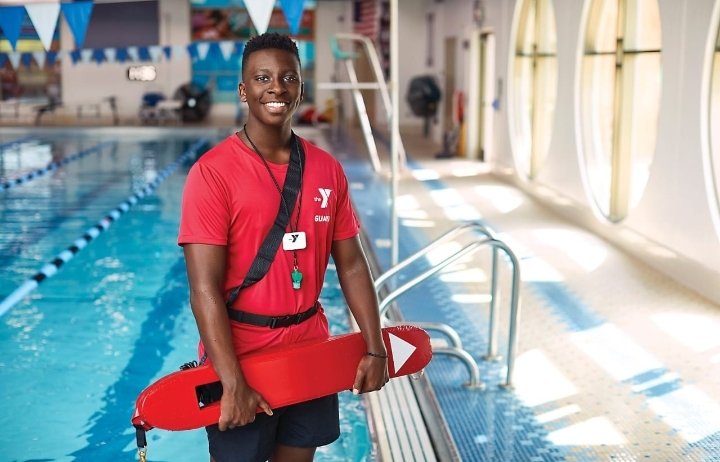Exploring the Deeper Impact of Lifeguarding
Lifeguarding is in many cases seen merely as a professional duty that includes monitoring swimming regions, ensuring the safety of benefactors, and responding to emergencies. However, it rises above these responsibilities and fills in as a vital community role that exemplifies dedication, leadership, and personal development.
In this article, we dive into the multifaceted nature of lifeguarding, featuring its importance past the job description.
The Lifeguard’s Role in Community Safety
Lifeguards are the watchmen of aquatic environments. Their essential duty is to safeguard the prosperity of swimmers, however their impact reaches out a long ways past actual safety. Lifeguards add to making a safe climate in community pools, beaches, and water parks. This conviction that all is good urges families to appreciate sporting exercises unafraid.
Moreover, the presence of lifeguards can diminish the rate of accidents, cultivating a culture of safety that advances capable swimming ways of behaving among benefactors.
Lifeguards likewise play a vital role in teaching the community about water safety. Through coordinated programs and easygoing discussions, they share essential information about swimming techniques, drowning prevention, and the importance of complying to safety rules. By showing benefactors the risks related with water exercises, lifeguards enable people to pursue informed decisions, eventually lessening the probability of accidents and emergencies.
Lifeguarding as a Leadership Opportunity
Lifeguarding isn’t just about being vigilant; it is a unique opportunity for personal growth and leadership development. Lifeguards should show certainty, fast decision-making, and successful relational abilities. In emergency circumstances, they are frequently expected to assume responsibility, coordinating supporters and planning rescue endeavors. This responsibility develops a feeling of leadership that stretches out past the pool or beach setting.
Moreover, lifeguards frequently work in groups, encouraging kinship and cooperation. This teamwork empowers the development of interpersonal skills and builds up the importance of supporting each other in high-pressure circumstances. Lifeguarding ingrains a feeling of responsibility, showing people how to be dependable for their own actions as well as for the prosperity of others.
Lifeguarding as a Path to Personal Development
The excursion to becoming a lifeguard starts with lifeguard training, which equips people with the essential skills to succeed in this role. Through thorough training programs, hopeful lifeguards learn basic skills like CPR, emergency treatment, and rescue techniques. These programs and certifications like CPR certification Toronto plan lifeguards to deal with emergencies as well as impart a feeling of certainty and preparation.
The personal development acquired from lifeguard training is priceless where lifeguards learn to evaluate circumstances smoothly, think basically under tension, and respond successfully to emergencies. These skills are adaptable and can benefit people in different parts of life, including scholastics and future careers. Furthermore, the experience of dealing with challenges directly cultivates strength and versatility, essential characteristics in the present quick moving world.
Building Lifelong Friendships
Past the professional viewpoint, lifeguarding sets out open doors for social interaction and building lifelong friendships. The affectionate community formed among lifeguards can prompt enduring associations and shared experiences. Whether it’s through group training meetings or get-togethers, lifeguards frequently wind up developing strong bonds that expand well past their time on duty.
These friendships encourage a feeling of having a place and backing, establishing an environment where people feel valued and associated. Lifeguarding can become a common enthusiasm, joining individuals from diverse foundations who are focused on the same reason — ensuring safety in aquatic environments.
Lifeguarding: A Commitment to Service
At last, lifeguarding is a commitment to serving others. The dedication displayed by lifeguards goes past the hours spent at work. Numerous lifeguards focus on community outreach programs, showing swim examples and drawing in with nearby schools to advance water safety. This commitment mirrors a certifiable craving to have an effect in the existences of others.
Furthermore, lifeguarding is a calling that encourages a feeling of direction. The information that their cautiousness can save lives propels lifeguards to succeed in their roles. This feeling of duty urges people to move toward their work with energy and dedication, supporting that lifeguarding is more than just a job; it’s a service to the community.
Finding Lifeguard training near me
For those keen on joining the positions of lifeguards, finding comprehensive lifeguard training near me is essential. Numerous organizations offer training programs that furnish people with the skills expected to become powerful lifeguards. These programs regularly include both hypothetical information and viable training, ensuring that hopeful lifeguards are totally ready for the challenges they might face.
In the event that you’re enthusiastic about water safety and are prepared to have a beneficial outcome on your community, consider enrolling in an American lifeguard training and certification program. The experience acquired through these programs won’t just set you up for the responsibilities of lifeguarding yet additionally advance your personal and professional life.
The American Lifeguard Association gives important assets and training opportunities for those anxious to set out on this satisfying excursion. By deciding to become a lifeguard, you are picking a path that envelops substantially more than a professional duty — it’s a commitment to safety, community, and personal growth.


